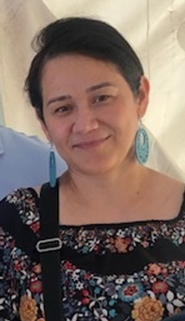Putting Students’ Needs First at Parent-Teacher Conferences
 My earliest experience with parent-teacher conferences came when I was in elementary school. Teachers — always in a rush to get to the next meeting — didn’t want to lose time making small talk and went straight to their scripted comments or district conference guides.
My earliest experience with parent-teacher conferences came when I was in elementary school. Teachers — always in a rush to get to the next meeting — didn’t want to lose time making small talk and went straight to their scripted comments or district conference guides.
My father, always arriving between jobs, sat tired and silent, while I, the interpreter/child, sat petrified next to him. My fear was never due to the content of teachers’ comments. What troubled me was the real possibility of not fully capturing the intended meaning in those comments.
The times I had to make decisions concerning my education or the education of my younger siblings because my parents didn’t have enough information to do so, were anxiety-ridden and terrified me. Parent-teacher conferences were a one-way transaction where my parents were the receivers of information and teachers were the providers.
Toward the end of each session, teachers invariably asked, “Do you have any questions?” My father’s response would always be a low, “No.” I watched my father accept information without comment or question. My father never saw himself as a partner in the education of his children. Sadly, my teachers never saw him as a partner in our education either. Their roles were clear, and to my young eyes, the power dynamics were even clearer.
Understanding Students Within the Context of Their Past
Perhaps as a true partner, my teachers would have gained my father’s trust and he would have shared relevant information about me. Perhaps he would have shared that my siblings and I had recently arrived in the United States after several years apart and that we were a reunified family. Perhaps he would have shared that my siblings and I left El Salvador to escape a violent civil war that had already claimed thousands of lives.
He may have shared how in the middle of the night, he led his five daughters (who were between the ages of 4 and 14) out of a small town in El Salvador and across hundreds of miles to Mexico; where we were later carried on shaky shoulders to traverse the murky waters of El Rio Bravo. He may have even shared that my sisters and I developed a deep fear of separation and for that reason embraced each other with tears in our eyes every time we saw each other in the school hallways, much to our teachers’ disapproval.
During my first year in a U.S. elementary school, my father was informed that I would be retained in first grade because I was not speaking English or making grade-level progress. If he had felt like a partner in my education, he may have shared that even though I didn’t yet speak proficient English and had not attended school in El Salvador, I had taught myself how to read and write in Spanish and served as my mother’s scribe when she needed to write letters to family back home.
Caregivers as True, Equitable Partners in a Child’s Education
 As a true partner, my father may have even questioned why I wasn’t receiving ESOL services. All this information would not have fit perfectly in a box on a parent-teacher conference sheet. Still, it is information that would have helped teachers better meet our social/emotional needs and better equip us to achieve academically.
As a true partner, my father may have even questioned why I wasn’t receiving ESOL services. All this information would not have fit perfectly in a box on a parent-teacher conference sheet. Still, it is information that would have helped teachers better meet our social/emotional needs and better equip us to achieve academically.
Fortunately, 30 years later, we have learned more equitable practices than using child interpreters to communicate with our multilingual families such as phone interpreters through United Language Group (check with your school administrators to access this service). We have also learned about the positive impact of family engagement on student achievement.
As you prepare for parent-teacher conferences, I urge you to consider these questions:
- What are we doing to dismantle inequities?
- How are we cultivating equity?
- How are we mitigating experiences of disparity within our own sphere of influence?
- What actions can we take to move the needle toward a more fair distribution of access and opportunities?
With every parent-teacher conference we have great opportunities to prioritize developing trusting relationships with our families; to understand how families experience their children’s learning and growth; to listen and learn about parents’ hopes and dreams for their children; and to identify ways to build partnerships to make those dreams a reality.
Some Suggestions for Teachers
- Provide your contact information and share your preferred tools for communicating: Talking Points, email, etc.
- Ask parents for their preferred method of communication (text, email, backpack notes, etc.) and commit to trying to use it.
- Provide your family liaison's name and contact information.
- If you use an in-person interpreter, remember that the conversation is between you and the parents. Make eye contact with the parent and address questions or comments to the parent.
